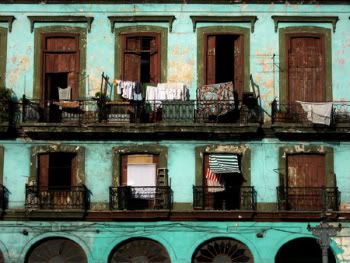THE GUARDIAN: For the last 50 years, Cuba has struggled under a crippling US trade embargo. But this week President Obama eased sanctions on the island. Rory Carroll reports from Havana on what this will mean for ordinary Cubans

They file into terminal 2 of José Martí international airport like any other tourists, wheeling and hauling luggage, checking mobile phones for reception, fumbling with passports. Navy blue passports, stamped with the image of a bald eagle with outstretched wings. American passports. History has yet to call time on half a century of enmity between the United States and Cuba, but these arrivals in jeans and sneakers are not awaiting a formal truce. A once forbidden island, they sense, is on the verge of opening up, and they are here to see it.
The trickle started a few weeks ago. Gum-chewing backpackers, middle-aged professionals, retirees, all bold enough to defy the US prohibition on spending money in Cuba, a de facto travel ban. Cubans half- jokingly call their new American visitors "los valientes", the brave ones, for carving a beachhead. Lenin, in a wry mood, might have called them a revolutionary vanguard. A more poetic soul would compare them to the first swallows of spring, harbingers of thaw.
The glacier in which the cold war remnant that is Cuba has been trapped may soon melt. Barack Obama this week lifted a broad set of sanctions that were designed to isolate the island. Cuban Americans, currently restricted on the amount of money then can send home and to one visit every three years, will be allowed to go as often as they wish and to send more money to relatives. Obama has also lifted restrictions on US telecommunications companies applying for licences to operate there, and on scheduled commercial flights to the island. Air travel is currently limited to charter flights from Miami, New York and Los Angeles for Cuban Americans with relatives on the island, and those with a special reason to visit, such as journalists.
The changes soften US policy but leave in place the economic embargo that John Kennedy imposed in 1962 - a ban on trade and investment designed to choke Fidel Castro's nascent revolutionary government. Over the decades the embargo was tightened and loosened, but the objective remained the same: topple Castro. It failed to do so. Cuba's economy staggered on and Castro strengthened his grip, but the embargo was maintained. >>> Rory Carroll | Wednesday, April 15, 2009
Guardian Audio: The Guardian's Latin America correspondent Rory Carroll explains why Barack Obama has been able to sidestep Florida's powerful Cuban exiles in breaking down barriers between the two nations >>>